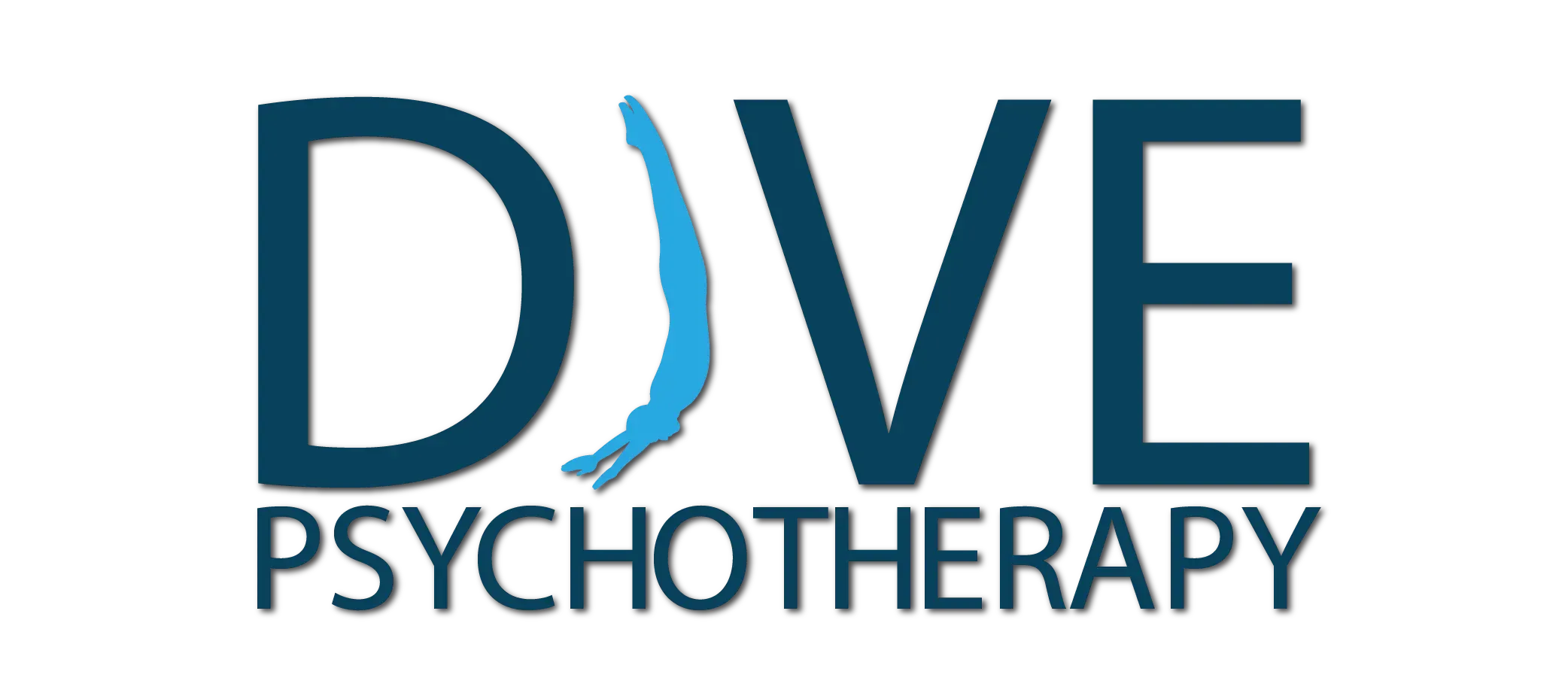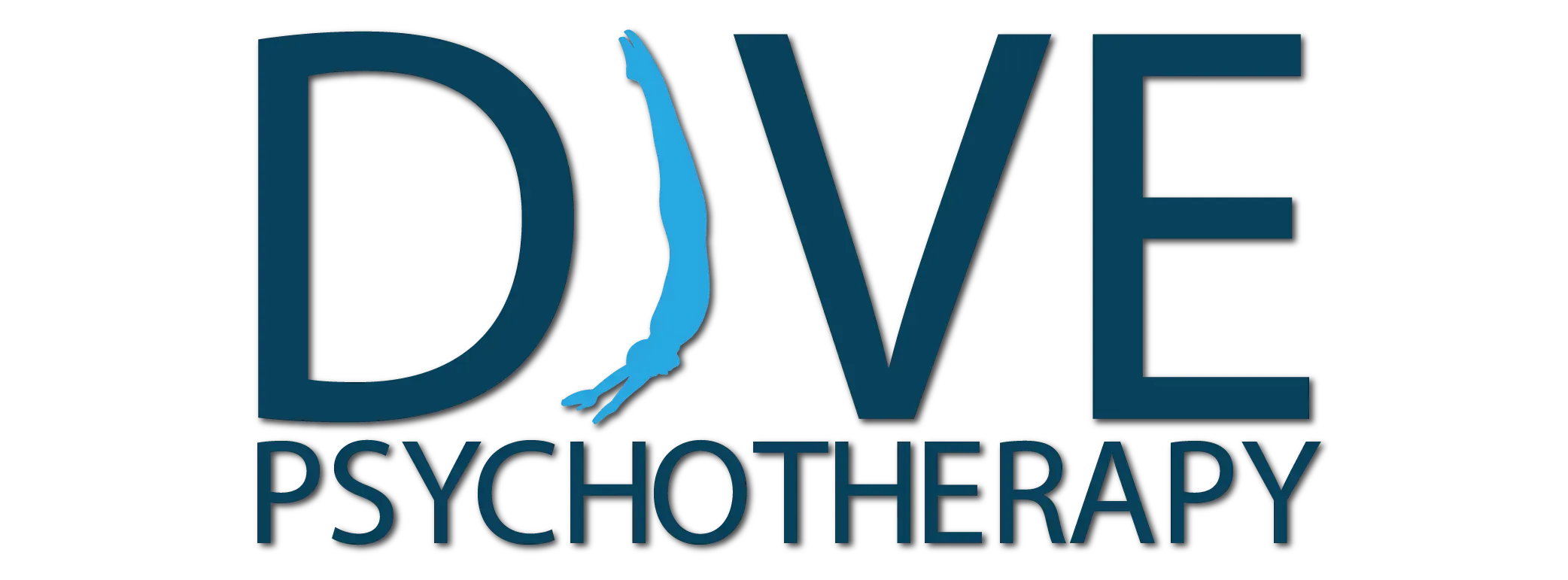Experience the Transformational Power of Integrating both the Analytical and Intuitive Mind
Evidenced-based therapeutic modalities lie at the heart of my practice

AEDP
(Accelerated Experiencial Dynamic Psychotherapy)

Many of us already understand why we’re stuck. We can explain the wounds, trace the patterns, even name the defenses. But insight alone doesn’t bring the kind of change we long for. That’s where AEDP steps in. It’s a strength-based, experiential model that helps us gently face the emotions we’ve had to avoid: grief, fear, shame, even joy because they once felt too overwhelming to bear. When we avoid feeling, we inevitably end up coping, through overworking, numbing, disconnecting, controlling, anything to keep emotions at bay.
AEDP offers another way. In the safety of a relationship that’s grounded, attuned, and deeply present, we don’t just talk about our emotions. We safely experience them. And in doing so, our relationship to ourselves begins to change. We stop organizing around avoidance and begin to access the clarity, vitality, and resilience that were always there, just waiting for room to breathe. This is where healing happens, not just intellectually, but in the body, in the heart, in relationship ... in real time.
IFS
(Internal Family Systems)

We often think of ourselves as one whole, unified self, but most of us experience something different. Maybe part of you longs to rest, but another part won’t stop pushing. Or you want closeness, but something inside pulls away. IFS helps us make sense of these moments by recognizing that we’re made up of many different parts, each with its own story, emotion, and intention.
When we learn how to map this internal world, something shifts. We begin to understand what’s actually driving us, rather than guessing or making assumptions that often miss the mark.
With a process that helps you turn toward the parts of you that have felt stuck, instead of running from them, you finally have a chance to be in relationship with them. So you can influence them, learn from them, and begin to change patterns that once felt out of reach. That’s where real healing begins.


EMDR
(Eye Movement Desensitization and Reprocessing)

EMDR is a powerful, experiential therapy designed to help the brain do what it naturally wants to do: heal. When we go through something overwhelming, whether it’s a big trauma or a subtle, repeated experience that left a lasting mark, our system can get stuck. We might know we’re safe now, but our body hasn’t gotten the memo.
EMDR helps unstick those experiences. It doesn’t rely on talking in circles or trying to “think our way out of it.” Instead, it uses bilateral stimulation (like eye movements or tapping) to support the brain’s natural processing system. We bring the experience into awareness and allow relationships with it to shift, gently, in real time.
At its heart, it’s a therapy that trusts your brain and body know how to heal, sometimes they just need the right conditions to do so.
If you’re seeking clarity, motivation, or a fresh perspective, coaching can help you take meaningful steps forward
Life Coaching
Together, we’ll clarify what matters, uncover what’s in the way, and shape next steps that are purposeful and doable

Unlike therapy, life coaching doesn’t focus on treating mental health conditions or unpacking deep trauma. Instead, it’s about removing barriers. It’s about making space to explore your patterns, your choices, and the parts of you that want more ease, more clarity, more connection, more alignment.
My work as a coach is still deeply relational, experiential, and grounded in real psychological insight. We’ll explore your internal world with warmth and curiosity, making room for agency, vision, and meaningful change.
We’ll also get practical. Coaching isn’t just about insight - it’s about integration. That means translating your inner clarity into outer action. Together, we’ll define what matters most, identify what’s getting in the way, and design steps that feel both doable and aligned.

Unlike therapy, life coaching doesn’t focus on treating mental health conditions or unpacking deep trauma. Instead, it’s about removing barriers. It’s about making space to explore your patterns, your choices, and the parts of you that want more ease, more clarity, more connection, more alignment.
My work as a coach is still deeply relational, experiential, and grounded in real psychological insight. We’ll explore your internal world with warmth and curiosity, making room for agency, vision, and meaningful change.
We’ll also get practical. Coaching isn’t just about insight - it’s about integration. That means translating your inner clarity into outer action. Together, we’ll define what matters most, identify what’s getting in the way, and design steps that feel both doable and aligned.

Clarity & Alignment
Creates space to explore what you truly want and align your life accordingly
Strengths Based GROWTH
Helps you recognize and lead with the strengths you’ve taken for granted
Empowered Change
Encourages agency and vision to make meaningful, self-directed shifts
Warm, Insightful Exploration
A supportive, grounded space to better understand your patterns and choices
Executive Coaching
This is about honoring what already works and removing the hidden friction that holds you back

You’ve built something impressive, and you’ve done it through intelligence, grit, and sheer will. But if you’re running on overdrive, second-guessing yourself, or starting to feel disconnected from the work that once lit you up, it might be time for a different kind of strategy.
One of my specialties is working with people who have zero work-life balance because the truth is, some lives leave almost no margin. Together, we create space where it feels like there is none. Space to process, to restore, to think clearly. That kind of space doesn’t just make you feel better, it makes you more effective, more sustainable, and more connected to your own leadership.
This work helps you notice what’s really driving you. Sometimes it’s healthy ambition or genuine curiosity, but often it’s tangled with parts that seek approval, avoid failure, or carry an invisible load. Distinguishing between those drivers lets you lead with intention, not just instinct, so you can grow without grinding yourself down.
I help clients connect the dots between their personal story and the larger systems they’re moving through. Because leadership doesn’t happen in a vacuum. And the patterns that show up at the top often started long before the boardroom.
We’ll find the places where things click. Where relief, clarity, and even joy show up. Coaching with me isn’t rigid or corporate. It’s strategic, human, and often surprising. You’ll work hard, but not from the same old place. You’ll lead better because you’ll know yourself better.

You’ve built something impressive, and you’ve done it through intelligence, grit, and sheer will. But if you’re running on overdrive, second-guessing yourself, or starting to feel disconnected from the work that once lit you up, it might be time for a different kind of strategy.
One of my specialties is working with people who have zero work-life balance because the truth is, some lives leave almost no margin. Together, we create space where it feels like there is none. Space to process, to restore, to think clearly. That kind of space doesn’t just make you feel better, it makes you more effective, more sustainable, and more connected to your own leadership.
This work helps you notice what’s really driving you. Sometimes it’s healthy ambition or genuine curiosity, but often it’s tangled with parts that seek approval, avoid failure, or carry an invisible load. Distinguishing between those drivers lets you lead with intention, not just instinct, so you can grow without grinding yourself down.
I help clients connect the dots between their personal story and the larger systems they’re moving through. Because leadership doesn’t happen in a vacuum. And the patterns that show up at the top often started long before the boardroom.
We’ll find the places where things click. Where relief, clarity, and even joy show up. Coaching with me isn’t rigid or corporate. It’s strategic, human, and often surprising. You’ll work hard, but not from the same old place. You’ll lead better because you’ll know yourself better.
Sustainable High Performance
Creates space to recharge, so you can stay effective without burning out
Intentional Leadership
Builds self-awareness to lead with clarity instead of reactivity
Whole-Person Strategy
Address both personal and professional dynamics that shape leadership
Human-Centered Growth
Strategy meets insight for sustainable
growth
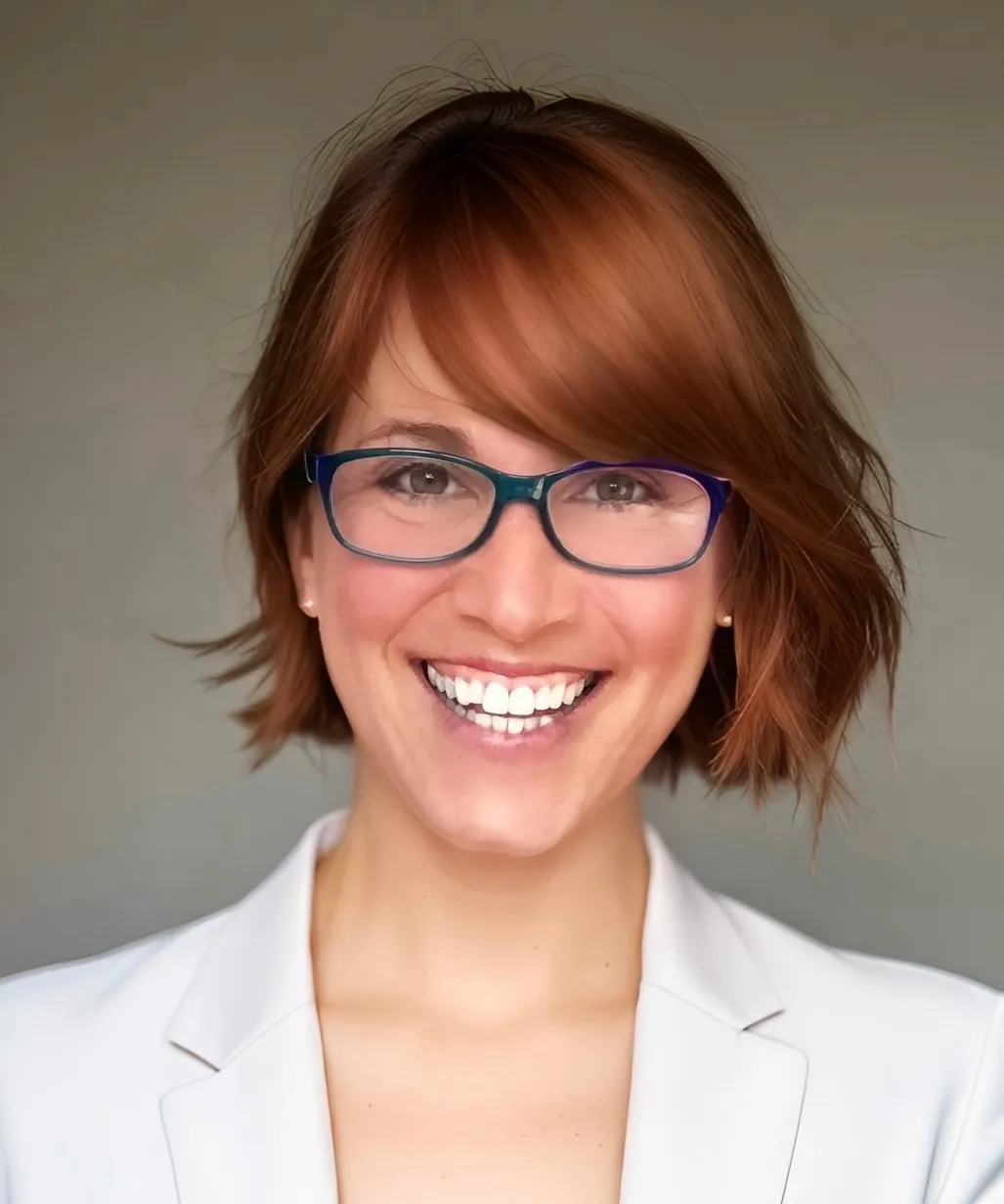
Hi, I'm Lisa...
(Lisa Gajda Maiolo, LMFT)
I spent 25 years as a professional dancer on Broadway. It was exciting, meaningful, beautiful work, and it came with a relentless drive to be perfect, to earn approval, to be “the best.” That kind of striving can take you far. But eventually, there are diminishing returns. The pressure to constantly prove yourself, to always be exceptional, can become a quiet kind of fear. It can hurt your health, your psychological well-being and your relationships. It’s not sustainable. And it’s definitely not freedom.
What I’ve come to understand is that the goal isn’t to stop being excellent, it’s to stop being compelled by it. You get to keep your ambition, your creativity, your extraordinary capacity. But when those things are powered by fear, deficit perspective or shame, they burn you out. They isolate you. Therapy helps shift that. We will get curious about the part of you that’s hustling so hard to earn worth, and we meet it with care, not judgment. That’s where space opens up, for choice, for agency, for a different way of being.
And here’s something important: your story doesn’t exist in a vacuum. Your race, gender identity, sexual orientation, economic status, culture, and more all impact how the world has worked on you. I am an LGBTQ-affirming, BIPOC-allied therapist. I strive to create a space where all identities are seen, respected, and celebrated, and where the impact of systemic oppression can be acknowledged, explored and processed.
This work isn’t always heavy, by the way. Sometimes it’s fun. You might be surprised to learn something about yourself that has been under your nose your whole life. There’s a joy, a relief in that click, that moment when something finally makes sense. Our work won’t be all grief and grit, sometimes it will involve laughter, lightness, and a clarity that unlocks movement, ease, and energy forward.
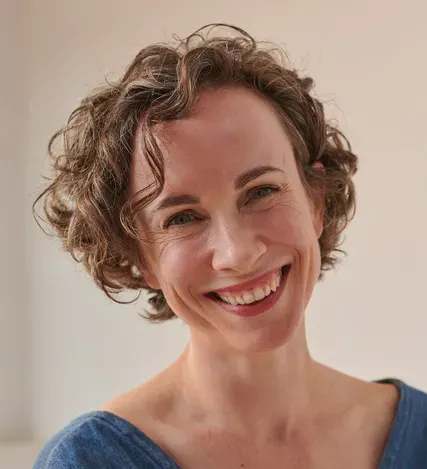
I'm Laura...
(Laura Mead, Staff Therapist)
I’m a Licensed Creative Arts Therapist and a Dance Movement Therapist. Before I came to this work, I had the honor of dancing professionally on international stages for two decades. The scope of my dance experience has instilled in me a belief that the transformative power of the body’s expression should be more widely shared. I’m delighted to be using my embodied knowledge now to help steward healing and growth for my clients.
Dance Movement Therapists are psychotherapists who are trained to incorporate body awareness and movement into mental health care. Minds and bodies are entirely intertwined, but when we behave as though they are separate, we can experience a sense of disconnect and dis-integration. In dance movement therapy, we use the body as a resource. We acknowledge the histories we hold in our bodies, providing compassion and care to the parts of us that have internalized harm. We allow our bodies space to share wisdom and healing potential that our cognitive minds alone just can’t access. Pleasure, joy and connection are all mediated through the body, and in Dance Movement Therapy we strive to access those too.
The ethos of my work is liberation; my practice is anti-oppressive, sex positive, fat allied, trauma informed, and LGBTQ affirming. I use a psychodynamic approach, integrating attachment theory and humanistic therapy. My dance movement therapy lens complements these modalities, whether folks are interested in talk therapy with a somatic backbone, or are game to incorporate movement and a creative process. However you show up, you are welcome and valued here.
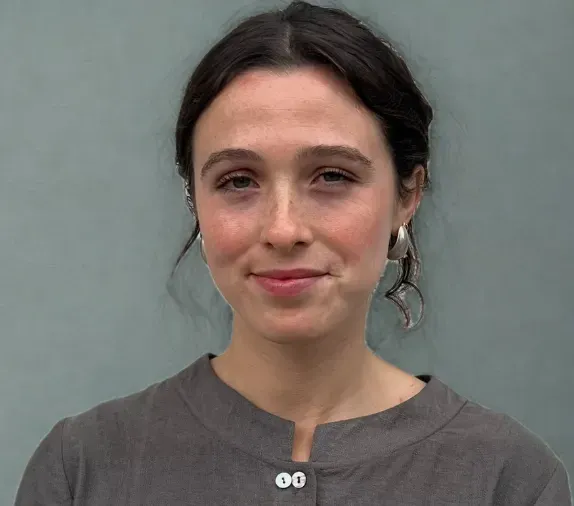
And I'm Emma...
(Emma Lesnick, Advanced Clinical Intern)
I deeply believe our capacity to heal is enabled through our connection with others.
My approach honors the authentic self and invites clients to do the same. When enduring complex situations and relationships, our innate strengths can become less accessible to us. I facilitate a therapeutic environment that encourages healing through slowing down and reconnecting with these quieter parts of self so that useful insights and a broader perspective can emerge in times of stuckness.
My therapeutic style is warm, collaborative and direct. I incorporate a creative and playful approach to the space, making therapy feel lighter and more approachable. I also make use of somatic based approaches to therapy where clients are asked to move away from the busyness of their lives and into embodied experiences where new information can be uncovered and resilience can be revealed. I will also explore techniques from AEDP and IFS, all in an effort to invite clients to return to their truest selves in times where emotions feel activated, clarity is lacking, and life feels especially overwhelming.
I value creating a safe, affirming space where all identities are honored, as my work is LGBTQ+ aligned and trauma-informed. My practice welcomes clients at various stages of life, working with teenagers facing developmental challenges, adults navigating major transitions, parents managing family dynamics, and older adults adjusting to life changes. I work well with people who are curious about their deeper motivations, want to explore parts of themselves that feel mysterious, and who are driven by a desire for true growth. To bear witness to someone’s uncovering of their truest self drives my passion for this work.
Helpful Tips to Get You UNSTUCK
Join our newsletter to receive notifications when new content drops
